Who said what about genocide in Gaza and Lebanon at OIC-Arab League summit?
By Maryam Qarehgozlou
An extraordinary joint Arab League and Organization of Islamic Cooperation (OIC) summit was held in Riyadh on Monday to address the devastating impact of Israel’s genocidal war on Gaza and Lebanon.
The war that completed 400 days earlier this week has resulted in tens of thousands of casualties, most of them women and children, according to both Gaza authorities and the United Nations.
The meeting, requested by the Islamic Republic of Iran, brought together leaders from the 57-member Muslim bloc, including Iran’s First Vice President Mohammad Reza Aref, Palestinian President Mahmoud Abbas, Lebanese Prime Minister Najib Mikati, Turkish President Recep Tayyip Erdogan and Syrian President Bashar al-Assad.
Saudi Arabia’s Crown Prince Mohammed bin Salman was the host of the high-profile event.
The summit was also attended by Iraqi President Mohammed Al-Sudani, Yemeni President Mahdi Al-Mashat, Kuwaiti Crown Prince Sheikh Sabah Al-Sabah, Jordanian King Abdullah II, Egyptian President Abdel Fattah Al-Sisi, Pakistani Prime Minister Shehbaz Sharif, and Nigerian President Bola Tinubu, among others.
A draft resolution issued by the OIC, the second-largest intergovernmental organization after the United Nations, with a collective population of over 1.8 billion, reaffirmed the centrality of the Palestinian cause and emphasized the “legitimate” and “inalienable” rights of Palestinians and the establishment of a Palestinian state.
“We reaffirm the full sovereignty of the State of Palestine over occupied East Al-Quds, the eternal capital of Palestine, and reject any Israeli decisions or measures aimed at Judaizing it and consolidating its colonial occupation of the city,” the resolution stated.
The resolution also rejected Israel’s decision to strengthen its occupation of Palestine, deeming it “null,” “void,” and “illegitimate” under international law and relevant United Nations resolutions.
It acknowledged Al-Quds Al-Sharif as a critical issue and a “red line” for the Arab and Islamic nations.
The resolution also expressed grave concern over escalating violence in the region, particularly the “horrific” and “shocking” crimes committed in the Gaza Strip, which has now extended into Lebanon, and warned of the violation of the sovereignty of Iran, Iraq and Syria by the Zionist regime.
It also condemned the forced disappearance of thousands of Palestinians amid the genocidal war on Gaza and subjecting them to “abuse, repression, torture and degrading treatment” in Israeli jails.
The Arab and Muslim nations also reiterated their “absolute support” for Lebanon, emphasizing their commitment to its security, stability, sovereignty, and the safety and well-being of its citizens.
The resolution placed responsibility on Israel for the lack of a ceasefire in Gaza and Lebanon and urged the United Nations Security Council to adopt a binding resolution to enforce a truce.
“[We are] warning that this double standard seriously undermines the credibility of the states that immunize Israel and place it above accountability along with the credibility of multilateral action, and exposes the selectivity of the application of the system of human values,” the joint statement noted.
Collective responsibility
Iran’s First Vice President Aref, in his address to the summit, pointed to the failure of the UN, especially the UN Security Council, in halting Israel’s genocidal war on Palestinians and Lebanese.
He attributed it to the steadfast support provided to Israel by the US and certain Western nations.
Aref urged all Muslim and Arab countries to recognize their collective responsibility to adopt a firm and unified stance in order to put an end to Israel’s genocidal crimes, emphasizing the need for a coordinated effort in the absence of effective international intervention.
“Under such circumstances, our responsibility as heads of Muslim and Arab countries multiplies,” the Iranian representative asserted in his speech.
“Muslim and Arab countries must develop strategies to ensure the non-repetition of Israel’s crimes and adequately compensate for the damages inflicted on the Palestinian and Lebanese people.”
Ayatollah Seyyed Ali Khamenei, Leader of the Islamic Revolution, has in his speeches consistently emphasized the critical importance of Muslim unity in confronting the Zionist regime and bringing to an end ongoing genocidal crimes in Gaza and Lebanon, aided and abetted by the United States.
His statements highlight the need for a collective and coordinated response from Muslim nations in order to counter the impact of Israel’s genocidal war against fellow Muslims in Gaza and Lebanon.
“Muslims stand united and cohesive, they can overcome all obstacles and defeat their enemies,” he stressed in his sermon on October 4, a week after the martyrdom of Hezbollah resistance movement chief Sayyed Hassan Nasrallah in an Israeli assassination.
“This unity counters the strategies employed by adversaries who seek to divide the Muslim Ummah through various deceptive tactics. However, Muslims are becoming increasingly aware, and the collective strength of the Muslim nation can prevail against such deceit.”
Unity and support
Palestinian President Abbas, representing the people of Palestine, in his address to the summit appealed to Arab and Islamic nations to demonstrate unity and support for the Palestinian people.
He called for the enforcement of a UN resolution to cease Israeli aggression on the Gaza Strip and ensure the provision of much-needed humanitarian aid to the blockaded region.
Lebanon’s Prime Minister Mikati told the summit that his country is suffering an “unprecedented” crisis that threatens its existence, as Israel wages its aggression against the people of Lebanon.
“Lebanon is going through an unprecedented historical and existential crisis that threatens its present and future,” he said, providing a grim assessment of the situation in the Arab country and citing more than 3,000 deaths and over 13,000 injuries to date.
Additionally, 1.2 million citizens have been displaced in recent months, he said, amid the Israeli regime’s aerial and ground aggression.
The economic damage has been equally devastating, according to Mikati, with estimated losses reaching $8.5 billion. This includes the destruction of 100,000 homes and significant impacts on critical sectors like education, health, and agriculture.
Complicity in genocide
Syrian President Bashar Al-Assad, for his part, said the tools to address the Israeli massacres exist and warned that failure to implement them would result in complicity in the continuation of genocide.
“We possess the tools, both officially and among the people, and we are capable of implementing them if the entity does not comply with the demands in our statements regarding the cessation of aggression,” Assad said in his speech.
“What is our actionable plan? Do we express anger or proceed with a boycott? Otherwise, we are complicit in the continuation of genocide, as we are not dealing with a state in the legal sense of the word, but rather with a group of killers and criminals.”
Yemeni President Al-Mashat stressed the importance of taking decisive action in response to the ongoing crisis including imposing an economic blockade, implementing a complete boycott, supporting Palestinian resistance, and opening border crossings with neighboring Arab countries.
“Continued complacency and disregard for the brutal crimes, or waiting for solutions from those who are the primary supporters of the enemy, will have severe consequences for everyone,” he warned.
The Saudi crown prince, as host of the summit, also condemned the “massacres committed against Palestinian and Lebanese people,” in a rare strongly-worded language used by him.
He called on the Israeli regime “to refrain from any further act of aggression” and called on countries around the world to recognize Palestinian statehood.
Ahmed Aboul Gheit, the secretary-general of the Arab League, echoed the sentiments of the Saudi crown prince, denouncing Israel’s deadly and destructive war on Gaza and Lebanon.
“Words cannot express the plight of the Palestinian people,” he said.
Jordanian King Abdullah II also denounced Israel’s ongoing war on Gaza and its expansion into Lebanon, urging increased assistance for the blockaded Palestinian territory.
“The region is experiencing an unacceptable tragedy, with more than a year of Israel’s war on Gaza having passed,” he said.
End to war of extermination
Gaza-based resistance movement Hamas, in a message to OIC, called for the formation of an international Arab-Islamic alliance to end the war of extermination in Gaza and Lebanon.
“The Islamic Resistance Movement (Hamas) has called on the kings, presidents, and leaders attending the joint Arab-Islamic follow-up summit […] to form an international Arab-Islamic alliance to pressure the occupation and its supporters to stop the war of genocide in the Gaza Strip and Lebanon,” the statement noted.
Hamas expressed readiness to engage with proposals and ideas that ensure the end of aggression, the withdrawal of occupying forces from Gaza, the return of displaced persons, the lifting of the siege, the reconstruction of affected areas, and the completion of a genuine prisoner exchange deal.
“Hamas urges all Arab and Islamic countries to boycott the occupation, cancel all normalization agreements signed with it, and work to isolate the occupation by all possible means,” it said.
The Democratic Front for the Liberation of Palestine (DFLP) in its message to OIC emphasized that they desire tangible actions rather than mere words and statements from Arab and Muslim leaders.
“Our Palestinian people in Gaza, the West Bank, and Al-Quds, the capital of the State of Palestine, do not want the words and statements of Arab and Muslim leaders, but await impactful actions that rise to the level of national, fraternal, and humanitarian responsibility,” DFLP said.
Popular Front for the Liberation of Palestine (PFLP) in its message to OIC made a similar plea, urging the Riyadh summit to move beyond discussions of settlements and surrender, and instead focus on actions that would genuinely protect the rights and well-being of Arab communities.
“The Popular Front for the Liberation of Palestine called on the countries gathered at the Riyadh summit to issue positions and practical measures that support our people and their resistance, and contribute to stopping the genocide, and not to cover the Zionist aggression and the war of genocide with speeches about settlements that abort the rights of the people and legitimize the occupation.”
OIC under fire
Monday’s summit came almost a year after a similar gathering of the Arab League and the OIC was held in Saudi Arabia to discuss the Israeli genocidal war against Palestinians.
During that summit, leaders denounced Israeli actions in Gaza as “barbaric,” however, despite proposals to cut economic and diplomatic relations with Israel or disrupt its oil supplies, the leaders were unable to reach a consensus on taking concrete action against the occupying Israeli regime.
Many countries that are part of the OIC and Arab League have been accused of blatant hypocrisy for maintaining trade and diplomatic ties with the Tel Aviv regime while condemning the war.
OIC comprises a diverse group of countries with varying stances on Israel. Some member states have established diplomatic relations with the regime while others maintain their firm opposition.
Over the past year, Since Israel launched its genocidal war against Gaza, killing over 43,600 Palestinians, Muslims worldwide have voiced their disappointment and frustration with the OIC for its failure to effectively intervene and halt the ongoing Israeli onslaught.
They criticize the lack of consensus among the OIC member states on taking decisive action, arguing that this reflects a lack of genuine commitment to addressing the crisis and protecting the rights of those affected by Israel’s genocidal aggression.
Abdulla Alamadi, author and columnist, in a post on X, slammed OIC for its inaction and made a sarcastic remark about its abbreviation, suggesting that the organization merely observes the situation without taking meaningful action.
“The Organization of Islamic Cooperation OIC meeting tomorrow comes after 400 days since the genocide in Gaza has started in front of the whole world, including the OIC members who will meet tomorrow, where nobody knows what called them to meet after all this time ?!” he wrote.
“Now I’m starting to believe the one who said that the abbreviation of OIC means “ Oh, I See” !!”
“3/4 will do what the West asks them to do. A combination of inferiority complex, naivety of trusting the west and weak institutions, economies and intelligence agencies to combat western regime change operations like coups, rebellions, sanctions etc,” a user on X under the handle @janm18459 wrote about OIC member states.
“More than half of these so called Arab-Muslim leaders would have taken permission from Israel just to attend this conference for face saving,” wrote another user, Sheraz Bahader.
VIDEO | Another US government shutdown looms as ICE furor grows
VIDEO | EU lawmakers condemn Trump over US human rights abuses
VIDEO | Iranian Embassy marks 47 years since Islamic Revolution with high-level attendance
Funding lapse set to trigger US Department of Homeland Security shutdown
Gaza’s civil defense says 8,000 bodies of genocide victims remain under rubble
Iran: Israeli violations main obstacle to peace, security in Syria
VIDEO | Trump-Netanyahu meeting
VIDEO | Palestine Action wins legal challenge


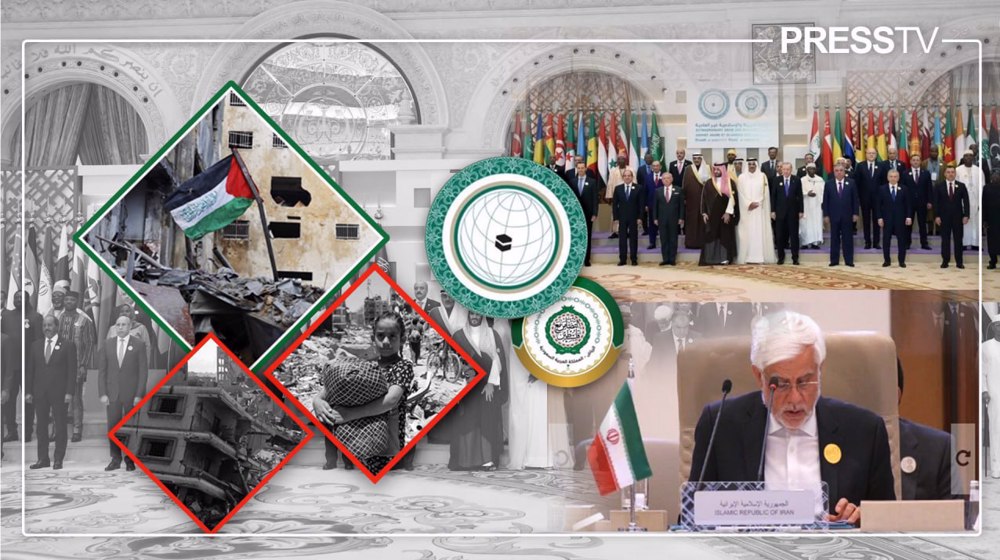
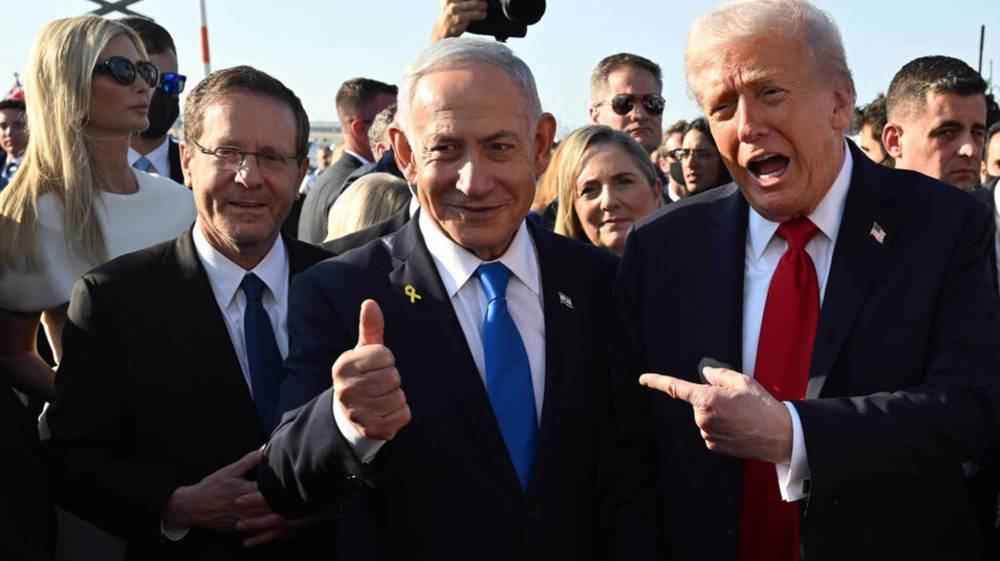
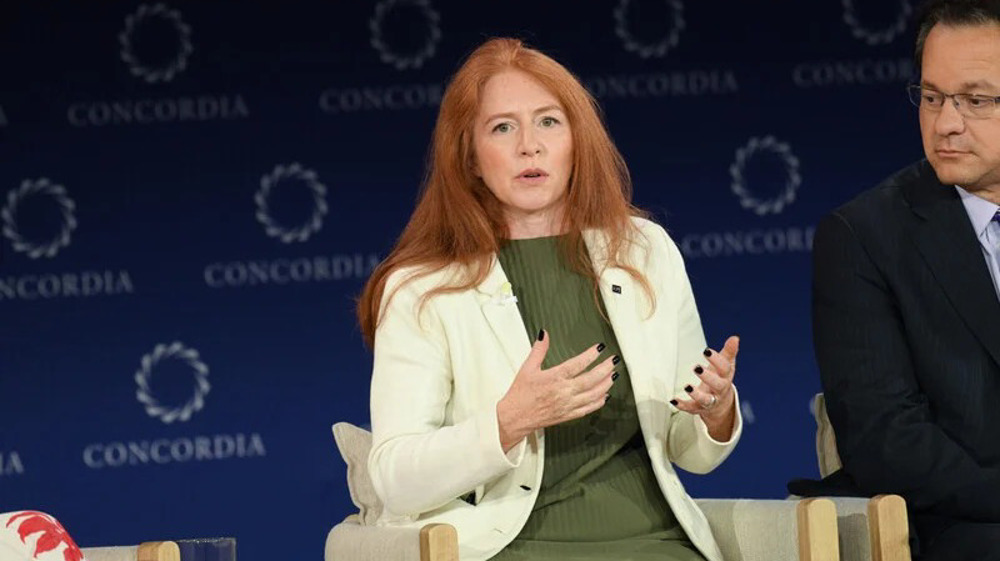
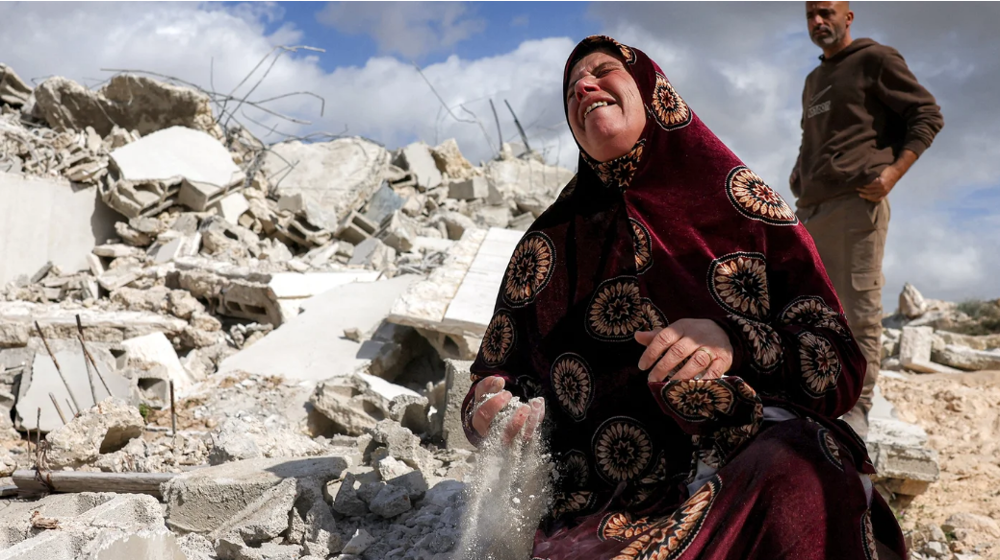



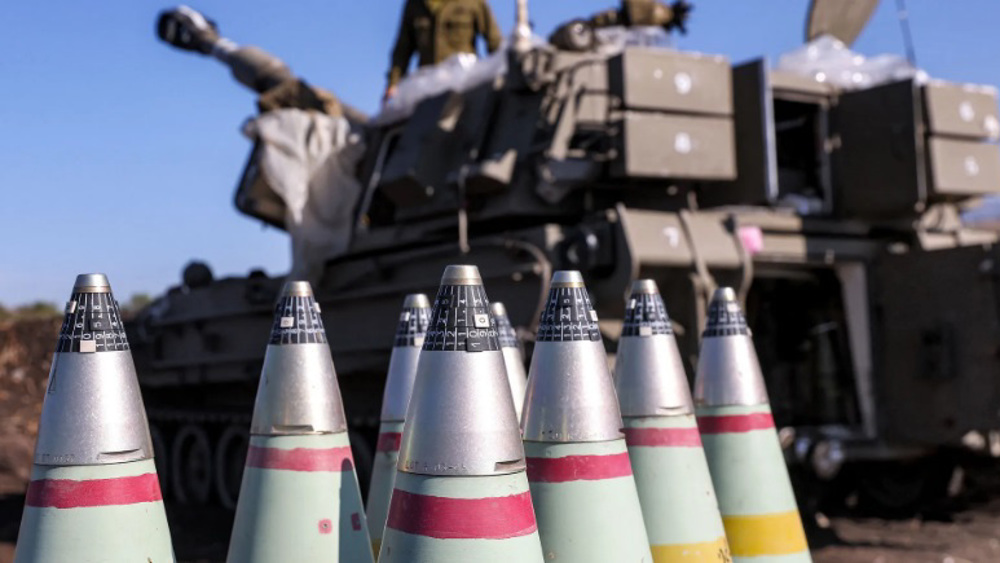
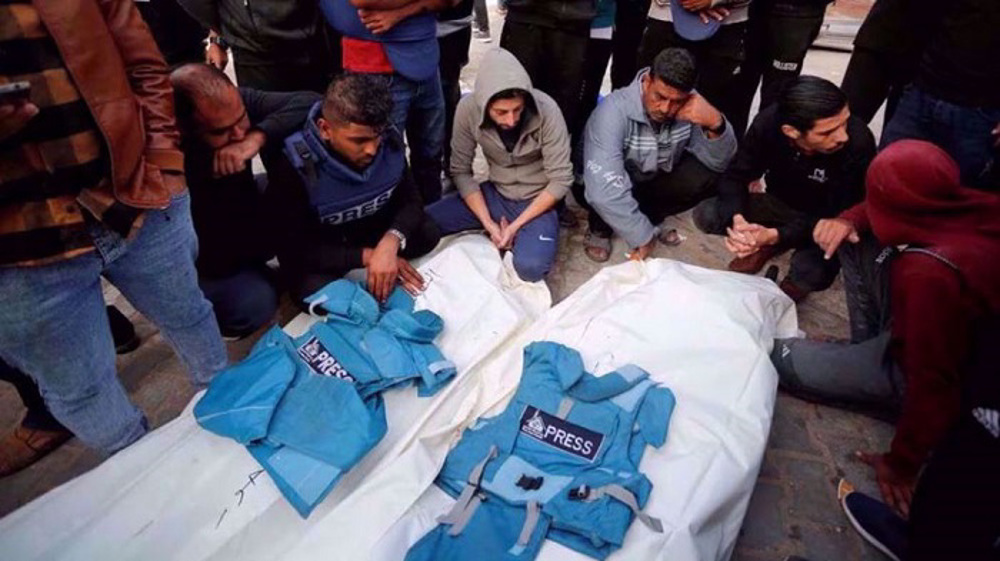
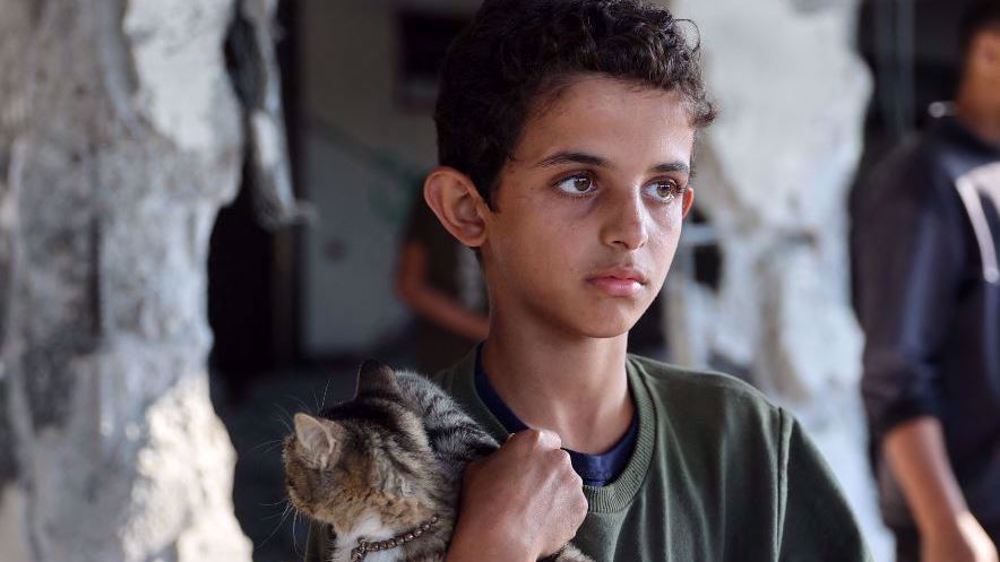
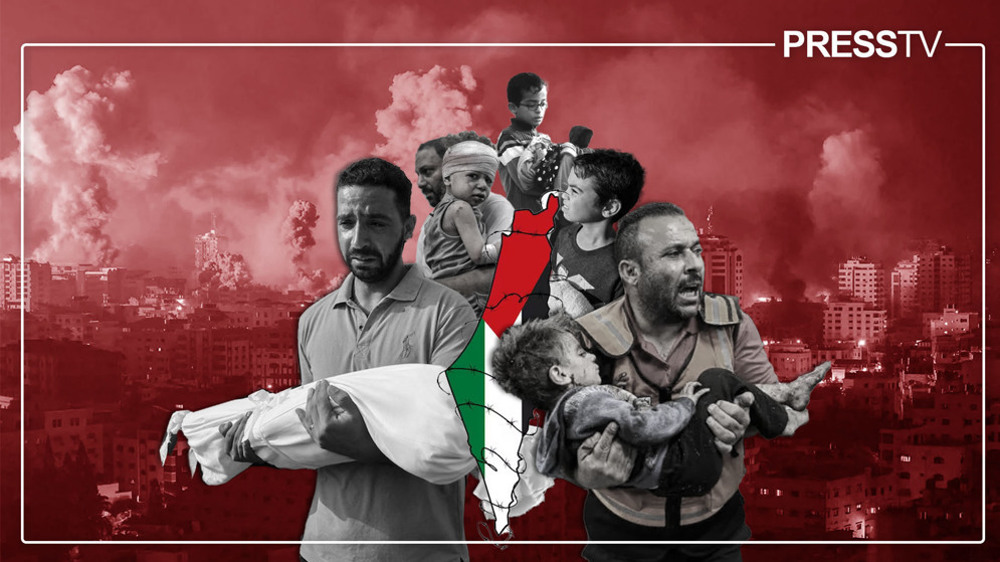
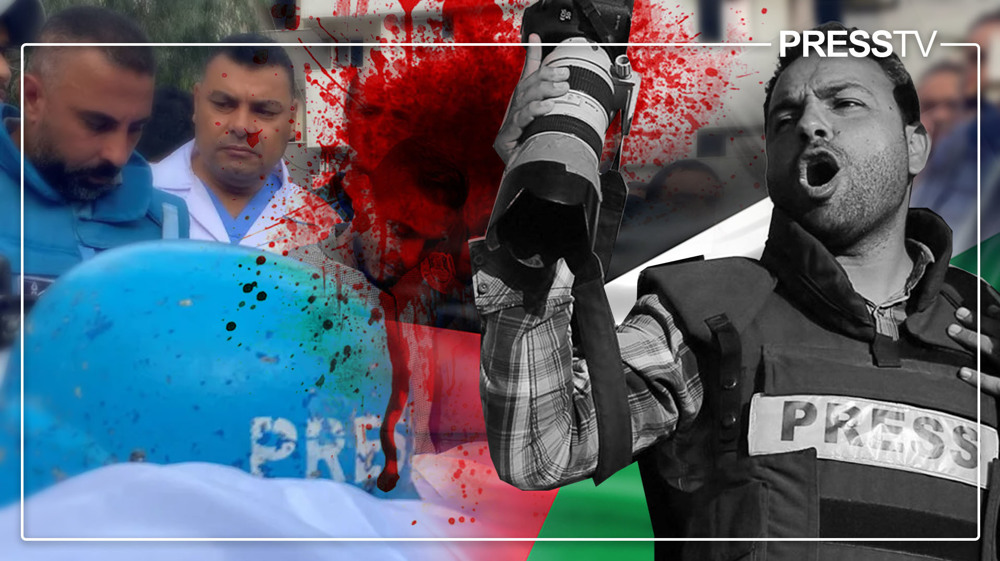

 This makes it easy to access the Press TV website
This makes it easy to access the Press TV website